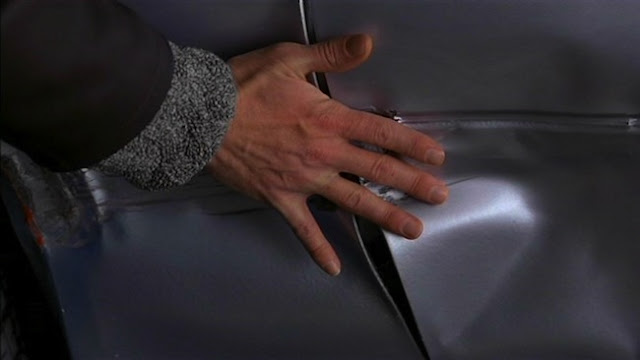Fear and desire: Stanley Kubrick passed 10 years ago

JULY 19, 1999: Here's the rare movie I would tell you to see totally without interference. From trailers, clips, interviews, yes, even reviews.
But Stanley Kubrick's final film, Eyes Wide Shut is not the film he made. It's about ninety-nine-and-forty-four-one-hundredths a pure, personal classic, and about sixty-five seconds of interference with the late filmmaker's final collaborators, the nameless, faceless ratings-givers of the MPAA. (The compromise to cover a bit of skin - digital smudges - are the sort of act that get spray-paint vandals thrown in the bin indefinitely.)
But there's a more interesting story here, an often sublime, teasing, suggestive, sinister, dreamlike and - eventually - an emotionally and morally explicit one. Eyes Wide Shut says more about how we love today, at the turn of the century, suspended between desire and fear, than any movie or novel that comes to mind.
Real-life marrieds Nicole Kidman and Tom Cruise play Alice and Bill Harford. He, an M.D., she, an unemployed art gallery assistant. Married nine years, they live with their young daughter in a near-palatial Central Park West apartment (reportedly modeled after one Kubrick's family had in the 1950s). The next 72 hours will test everything they know. As they prepare for a party given by a wealthy acquaintance (Sidney Pollack), Bill jokes, "This is what you get for making house calls." The multiple meanings grow more disorienting and dangerous after a few glasses of champagne, a few flirtations, by the pair. Go outside the house, the world batters at your hard-won family, domesticity is inevitably disrupted. (A theme that homebody Kubrick surely found personal.) When they return home, a secret spins Bill's perspective of his moneyed world out of control.
Kubrick captures the intimacy we all crave but truly fear as well. If our secrets make us who we are, who do we become when we let another into our heads? Jealous, anxious creatures on the evidence here. Eyes Wide Shut makes the skin crawl like anticipation of rejection by a lover. You know it's going to hurt, but you don't know how much until the strangeness of the physical sensation of heartache races over you.
We never truly know why someone loves us - and we never know how they have your hooks in you until, not an instant of betrayal, but our first hint, niggling, darting hint, that they could possibly, conceivably betray. The story is a little like Scorsese's After Hours, tracing Bill's strange and comic journey to the end of fright. But while very funny, Eyes Wide Shut isn't comedy. Each time a complication seems ready to play out, there's another, another, another - coitus interruptus interruptus. The stakes are higher and simpler. Kubrick seems to have been searching for a horror that goes deep into the soul and the marrow instead of just the basement or tool shed. And what is that horror? The answer to the most frightening question of them all: "What are you thinking?" It is Alice who sends Bill down the rabbit hole, and but for a handful of Aussie-sounding inflections, Kidman is a revelation, the most complex and compelling of several intricately drawn female characters, playing a deliciously adult role. Often good with a good director, she may even prove to be great with Kubrick after another viewing.
The look of the film is daring, too, playing with grain and bright light and blown-out colors. Kubrick becomes a poet of nocturnal blue and its play across flesh. The role of "Dr. Bill" also continues Cruise's roster of sexually tested, even humiliated characters, who grow only through challenges to their manhood. He is forced to admit that he does not know the limits of the erotic imagination. Think of something, someone's gone one thought further, and think of this - one act, then another, then another, and beyond. A Greenwich Village created mostly on a studio backlot reinforces the dream-quality of the film, with street names that do not exist and store names that reinforce the script's many playful leitmotifs.
Bill learns the confines of his world, the limits of his privilege and power. There is always someone with more power than you, someone who will make you helpless, take your minimal power away. But what is the fortress? What is the strength? Love. Fidelity. The marital bond.
The killing power of desire has always been a theme that interested Kubrick, and on first sight, "Eyes Wide Shut, which could equally bear the title of his first film, "Fear and Desire," is a masterpiece of intimacy, of how it feels when you realize, in Joseph Conrad's phrase, we live as we dream - alone. But at 70, Kubrick found hope: we must reach out. [Originally published in Newcity.]
